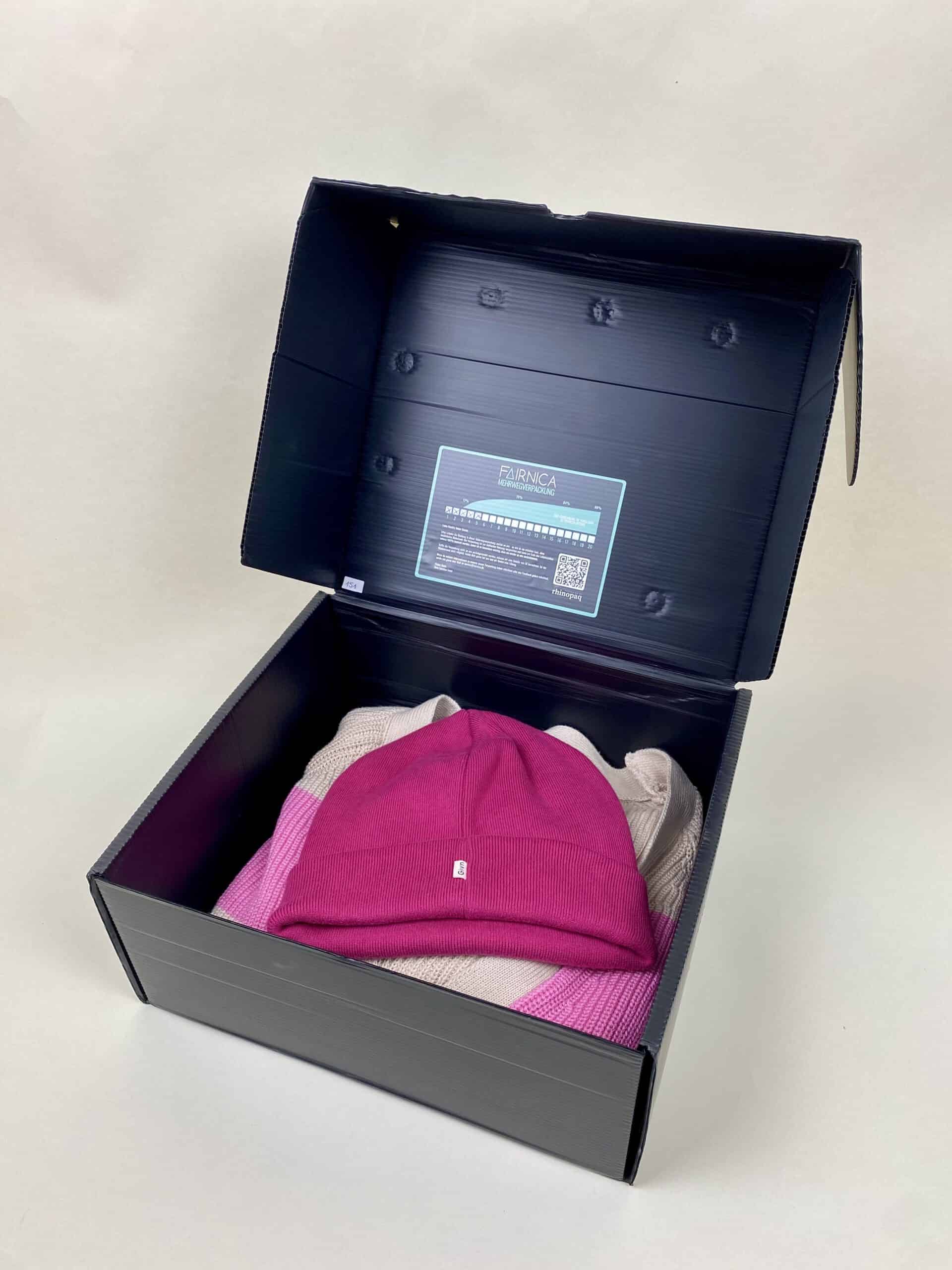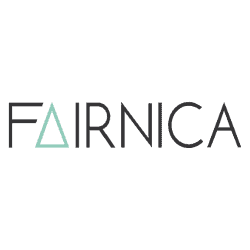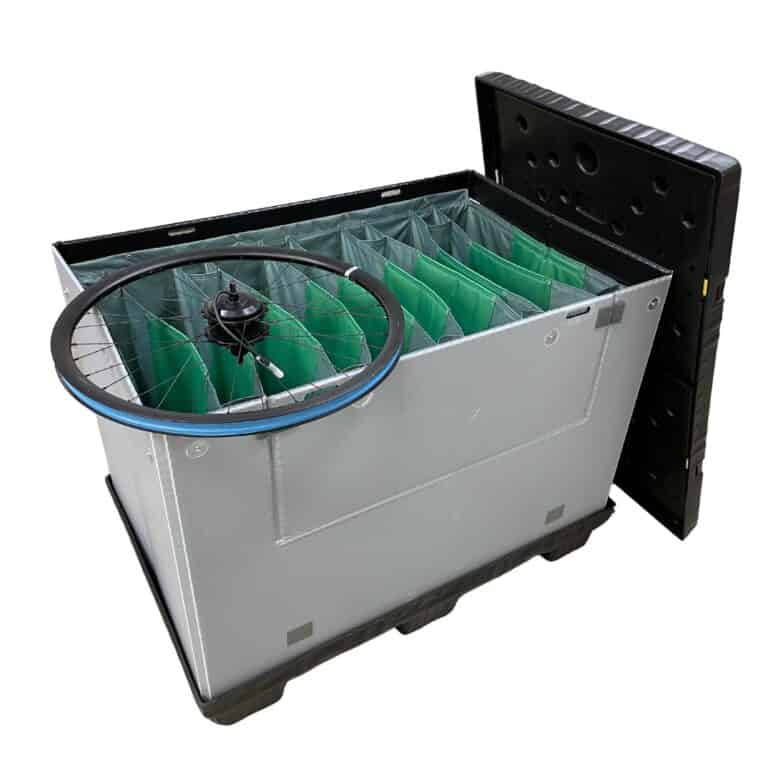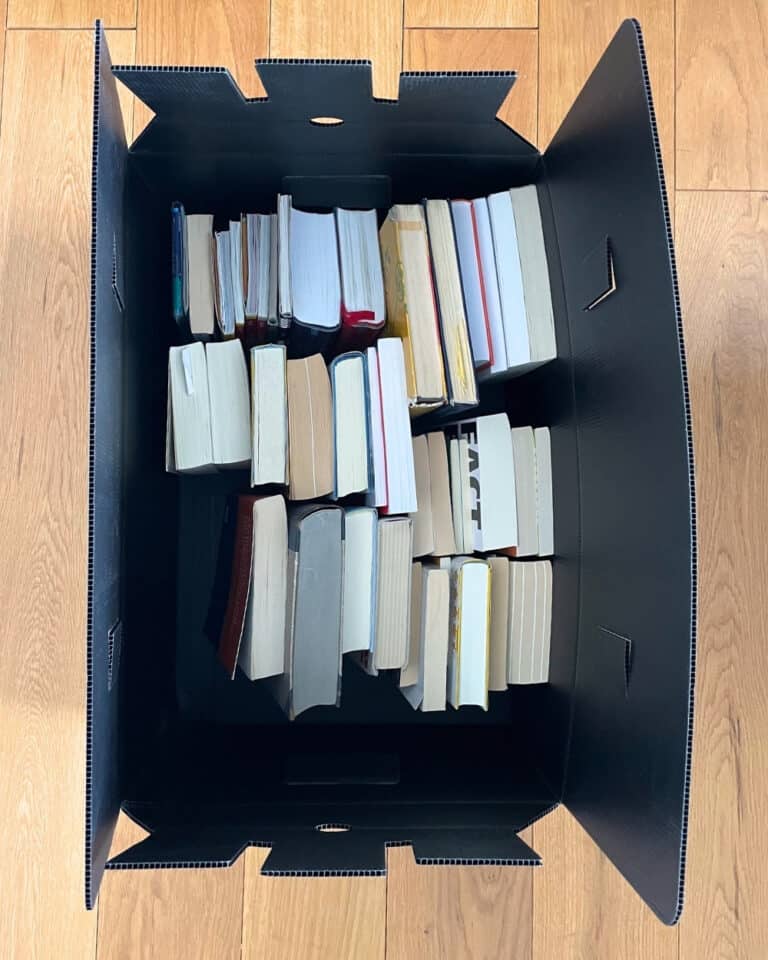Fairnica uses our reusable packaging for shipping clothing that customers rent for a certain period of time. The company currently uses two different shipping boxes: the rhinopaq M and the rhinopaq L. The outward and return shipment of the clothing represents a usage cycle. After more than two years, we have been able to achieve the following values for our rhinopaqs , thereby reducing costs and, above all, Fairnica 's carbon footprint.
The cost comparison with the reusable shipping box
For our rhinopaq M, 15 uses (30 parcel shipments) per reusable packaging are achieved in this application. This puts the cost per use at €0.54 and the cost saving compared to disposable packaging at €1.11 per use at 51%. The CO2 savings in this case are 83% - 0.62 kg of CO2 was released during the production of each reusable packaging. In contrast, 15 cardboard packs release 3.58 kg of CO2. For our rhinopaq L, we have 13 uses (26 parcel shipments) and, analogously, 41% cost savings and 80% CO2 savings. Consequently, its use is worthwhile both ecologically and in terms of costs.


About Fairnica
Fairnica sustainable and fair clothing for rent in curated fashion capsules. Customers can take out a subscription for the clothing, similar to Netflix, and enjoy new outfits on a regular basis. But why rent? In line with Fairnica motto, Fairnica adapts to you and your circumstances, not the other way around, Fairnica the right clothing can be selected depending on your life situation. Pregnancy, breastfeeding, or weight fluctuations, for example, can cause the desired clothing and its size to change over time. Thanks to the rental model approach, these changing requirements can be taken into account.
Renting clothes also makes sense in terms of sustainability. The rental model means that clothes are worn longer and more often than those that are permanently in your own closet. In addition, the clothes are professionally cleaned and refurbished, which also extends their useful life. In this way, the global demand for newly produced clothing can be significantly reduced. Clothing in the rental model therefore not only brings more variety into the personal closet, but also helps to significantly reduce CO2 emissions and water pollution caused by the production of clothing.
Contact us
Do you have questions or want to change your process? Write to us using our contact form. We look forward to getting to know you.



